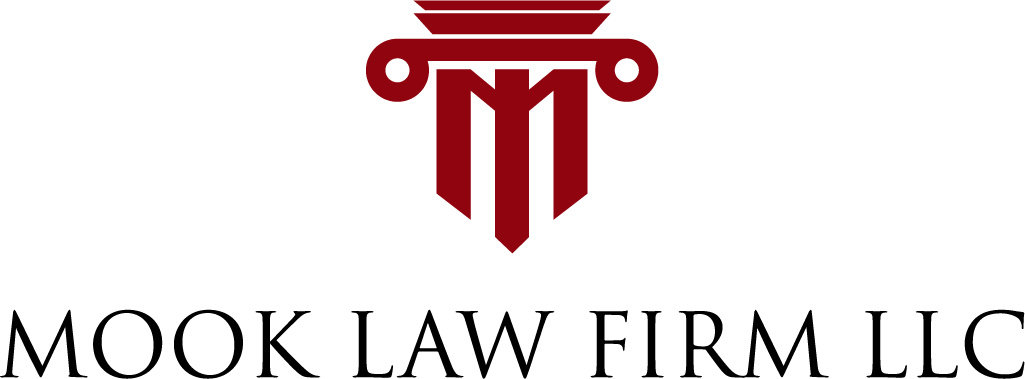
Understanding Consumer Fraud: When Can You Take Legal Action?
Consumer fraud happens when businesses or individuals use deceptive, misleading, or unfair practices to take advantage of consumers. This can involve false advertising, bait-and-switch tactics, hidden fees, or outright scams. When companies put profits over honesty, consumers often suffer financial losses and feel powerless. That's where legal action comes into play.
With our consumer protection lawyer, we help people who’ve been misled or defrauded by companies that don’t play fair. Our firm, Mook Law Firm LLC, is located in Kansas City, and we look forward to helping you hold these entities accountable to prevent further harm to others.
Common Types of Consumer Fraud
Understanding different types of consumer fraud can help you recognize when you have a legal claim. Some of the most common types include:
False Advertising
Businesses sometimes use misleading claims to sell products or services. If an ad promises one thing but delivers something entirely different, that could be false advertising. This includes exaggerated performance claims, hidden terms, or misleading images that don’t reflect the actual product.
Companies that engage in false advertising not only deceive consumers but also create unfair competition in the marketplace. When businesses lie about what they offer, customers waste their hard-earned money on products that don’t meet expectations.
Bait-and-Switch Tactics
Some companies advertise a product at a great price to get customers in the door, only to claim it's out of stock or pressure buyers into a more expensive option. If a business deliberately deceives consumers this way, they could face legal consequences.
This tactic can leave consumers feeling frustrated and trapped into making purchases they didn’t intend. Holding these businesses accountable can stop them from misleading others in the future.
Unfair Debt Collection Practices
Debt collectors must follow strict rules when trying to collect money. Harassment, threats, or deceptive tactics violate consumer protection laws. If a debt collector crosses the line, legal action may be an option.
Consumers dealing with debt already face financial stress, and aggressive collection tactics can make things even worse. The law offers protection against these practices, giving consumers a chance to fight back.
Credit Card and Identity Theft
Stealing someone’s financial information and using it without permission is a serious crime. If a business fails to protect customer data or fraudulently charges consumers, legal claims may arise.
Identity theft can lead to financial ruin, damaged credit scores, and years of trying to undo the harm caused. Companies that fail to secure personal information should be held responsible for their negligence.
Predatory Lending
Some lenders use high fees, hidden charges, or unfair loan terms to trap borrowers in debt. If a lender has taken advantage of you, a consumer protection lawyer can help assess your options.
Predatory lenders target vulnerable consumers, including the elderly and those with lower incomes, making it difficult for them to escape financial hardship. Legal action can force lenders to follow fair lending practices.
Auto Fraud
Car dealerships and repair shops sometimes engage in dishonest practices, like rolling back odometers, hiding defects, or inflating repair costs. If you’ve been deceived, you may have a case against the business.
Buying a car is a major investment, and dishonest sellers can leave consumers stuck with unreliable vehicles or unexpected costs. Legal action can help recover losses and prevent others from falling victim to similar schemes.
When Can You Take Legal Action for Consumer Fraud?
If a business has misled or harmed you financially, you might have grounds for legal action. To build a strong case, we look at a few key factors:
Was the Business’s Conduct Deceptive?
Missouri law protects consumers from unfair or deceptive practices. If a company intentionally misrepresented a product or service, left out important details, or used aggressive sales tactics, legal action may be appropriate.
Deceptive conduct can be subtle, such as small print in a contract that contradicts what a salesperson promised, or more blatant, like outright lies about a product’s quality.
Did You Suffer Financial Loss?
To file a claim, there must be actual damages. This could mean losing money on a fraudulent product, overpaying due to hidden fees, or dealing with unauthorized charges. Even small financial losses can add up over time, especially if many consumers fall victim to the same scheme.
Did the Business Violate Consumer Protection Laws?
Missouri’s Merchandising Practices Act (MPA) provides strong protections against deceptive business practices. If a company has engaged in fraudulent or unfair conduct, we may be able to take legal action on your behalf. The MPA serves as a critical safeguard for consumers, helping them recover losses and prevent future fraud.
Missouri’s Merchandising Practices Act (MPA) in Consumer Fraud Cases
The Missouri Merchandising Practices Act (MPA) is the backbone of consumer protection laws in the state. It applies to nearly all transactions involving goods or services and gives consumers the right to take legal action when they’ve been misled or deceived. This law covers fraudulent advertising, hidden fees, and misleading contract terms.
One of the key benefits of the MPA is that it allows consumers to seek damages, including refunds, attorney fees, and in some cases, punitive damages meant to punish particularly bad behavior. The MPA doesn’t just protect individuals—it also helps keep businesses honest by discouraging deceptive practices.
Many consumer fraud cases in Missouri rely on the MPA to hold businesses accountable. If you’ve been misled by a company, taking legal action under this law can help recover financial losses and prevent further misconduct.
How Businesses Try to Avoid Accountability for Fraud
Unfortunately, businesses accused of fraud don’t always admit wrongdoing. Instead, they often use various tactics to avoid liability. Some may claim that consumers agreed to unfair terms in the fine print of contracts. Others argue that they didn’t technically break the law, even if their conduct was deceptive.
Companies may also try to settle cases quietly to avoid bad publicity. While settlements can provide quick compensation, they sometimes allow dishonest businesses to continue harmful practices. That’s why it’s important to work with a consumer protection lawyer who understands these tactics and can push for real accountability.
What to Do If You Suspect Consumer Fraud
If you think you’ve been a victim of fraud, taking action right away is important. Here are a few steps to protect yourself:
Gather documentation: Keep copies of receipts, contracts, emails, and any communication related to the fraudulent transaction. The more evidence you have, the stronger your case will be.
Report the fraud: You can file complaints with the Missouri Attorney General’s Office, the Federal Trade Commission (FTC), or other consumer protection agencies. Reporting fraud helps prevent others from being scammed.
Contact a consumer protection lawyer: A consumer protection lawyer can review your case and help determine the best path forward. Whether through negotiation or litigation, we work to hold fraudulent businesses accountable.
By taking immediate action, you have a better chance of protecting your assets.
Frequently Asked Questions
How Do I Know if I Have a Consumer Fraud Case?
If a business has misled you, charged hidden fees, or used deceptive practices that caused financial harm, you may have a case. A consumer protection lawyer can review your situation and advise on the next steps.
What Kind of Compensation Can I Recover?
Depending on the case, you may be able to recover financial losses, legal fees, and even punitive damages if the business acted maliciously.
How Long Do I Have to File a Consumer Fraud Claim in Missouri?
Missouri law imposes time limits on filing fraud claims. In most cases, you have five years from the date of the fraudulent act, but it’s best to consult a lawyer as soon as possible.
Do I Need Evidence to Prove Fraud?
Yes. Documentation such as receipts, contracts, emails, and records of conversations can strengthen your case.
How Much Does It Cost to Hire a Consumer Protection Lawyer?
Many consumer protection lawyers work on contingency, meaning you don’t pay unless you win your case. Others may offer free consultations to discuss your legal options.
Get in Touch Today
Consumer fraud can have serious financial and emotional consequences. If you've been misled or deceived, you don’t have to handle it alone. Mook Law Firm LLC serves clients in Kansas City, Missouri. Reach out to us today.

